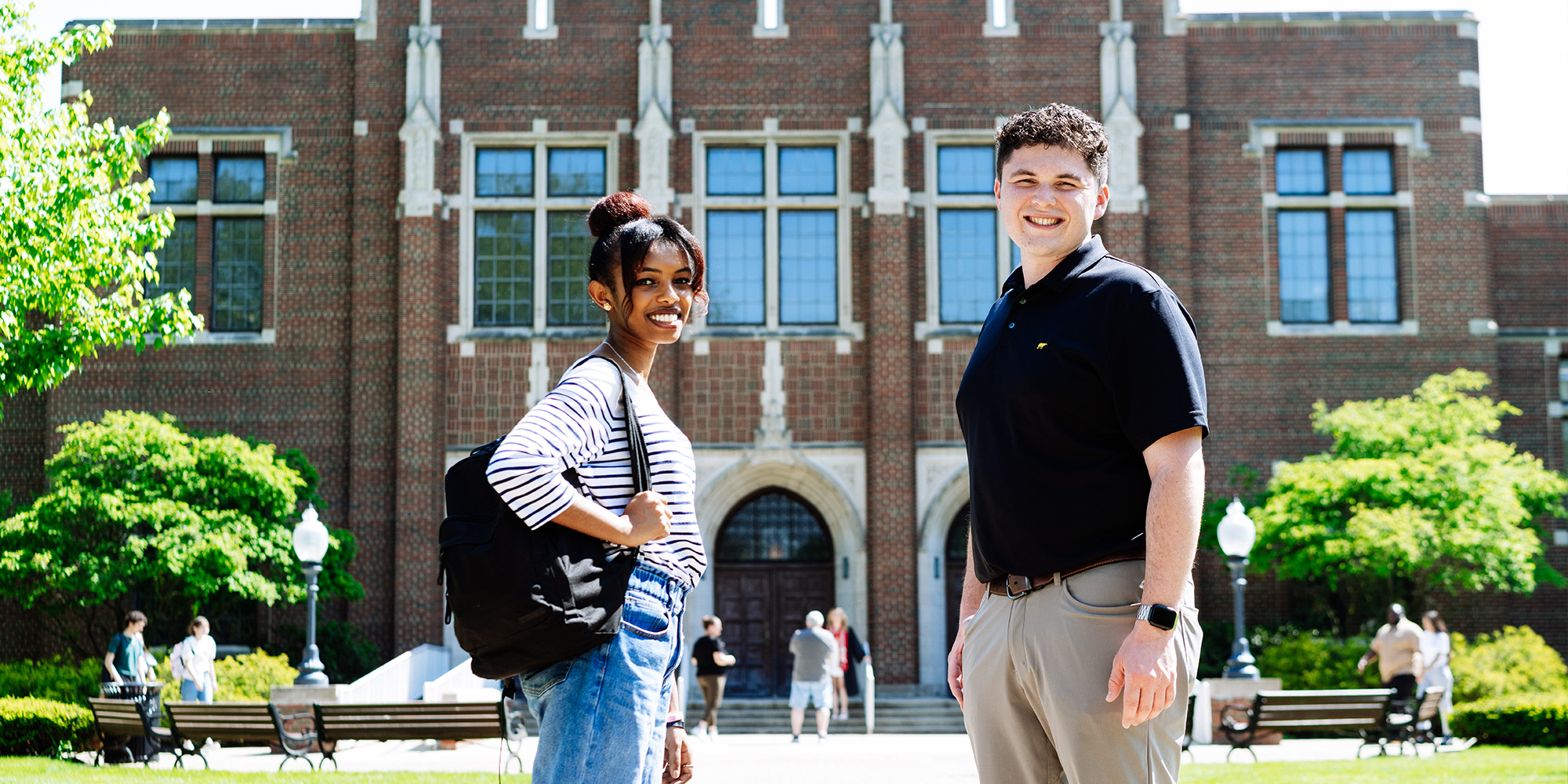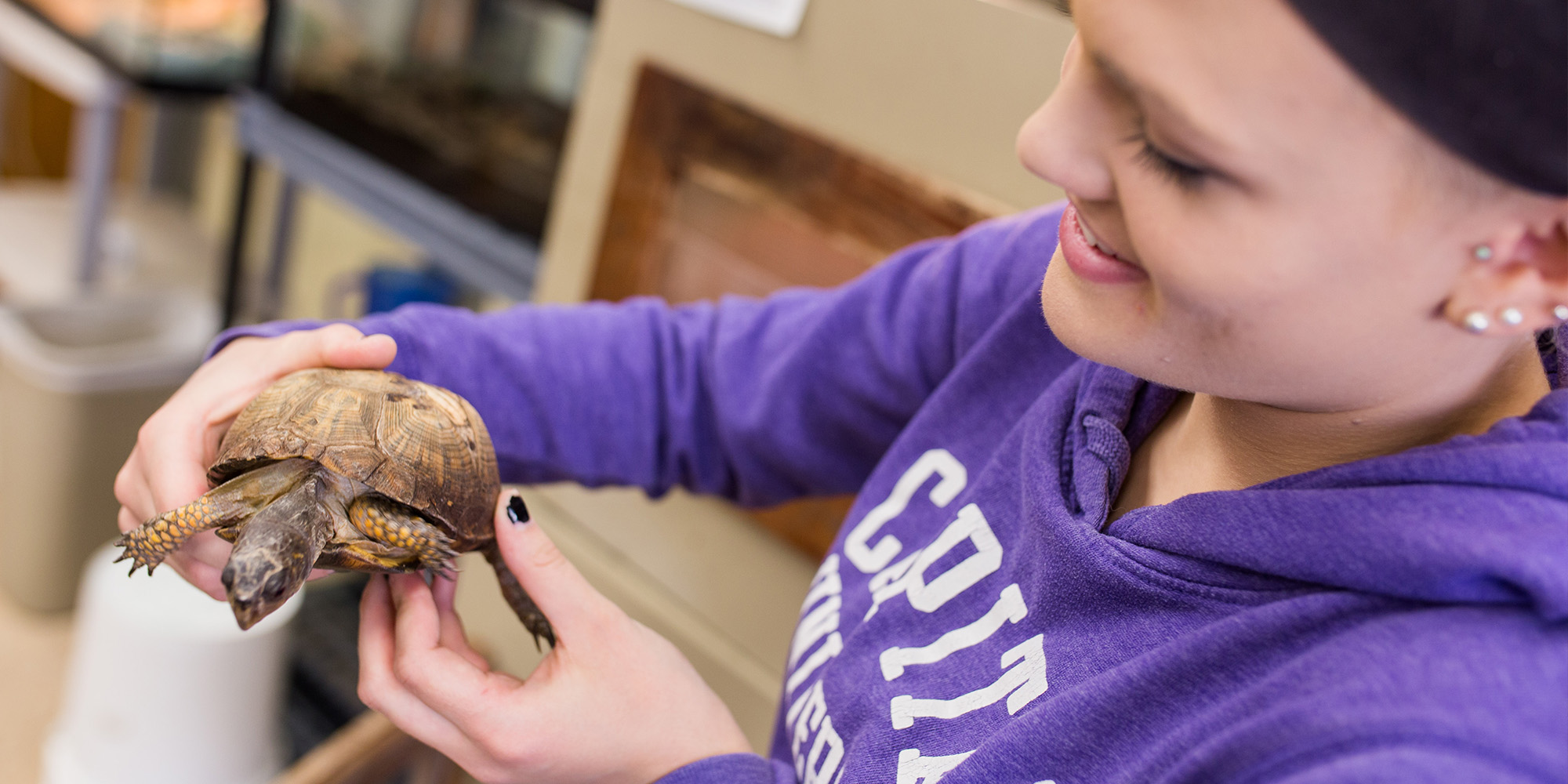Student to Faculty Ratio
Acre Primmer Outdoor Learning Center with 7 Ecosystems
Faculty Advising from Start to Finish
Explore this Program
Students are encouraged to participate in internships and laboratory
and field-based research opportunities that may lead to presentations
at regional or national scientific meetings. Short-term field courses
allow students to study Biology and Environmental Science topics,
and become involved in the broader community. A hands-on internship or research opportunity in a business, government agency, or volunteer
organization is also available to round out each student’s training.
Capital University’s Primmer Outdoor Learning Center in the Hocking Hills region is a 74-acre property with seven ecosystems, including a 15-acre wetland, a secondary growth deciduous woodlot with groundwater seeps which feed into small streams, and restored prairie habitats. This center is used by students and faculty for research and service projects focused on ecological restoration, biological conservation, and environmental sustainability.
Science teachers are in high demand. Students pursuing the Environmental Sciences Education Certificate want to bring science to life for young learners. The broad expertise and professional commitment of the Science faculty at Capital offer students the personal attention and necessary breadth to understand and solve complex Biological and Environmental problems. In addition to a strong science
foundation, the Environmental Sciences Education Certificate includes courses in economics, public policy, technical writing, and environmental regulations all of which are designed to help students understand the underlying causes of many environmental problems.
Sample Classes
- Foundations of Biology
- Principles of Chemistry
- Research Methods
- Genetics
- Ecology
- General Physics

Request Information
Request Information
Schedule a Visit
Schedule a Visit
Apply to Capital
Apply Now